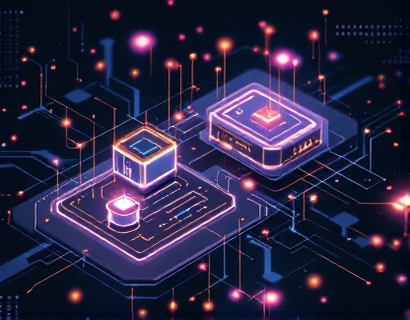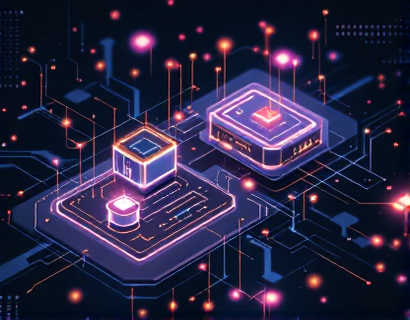AI-Driven Baguette Industry Insights: A Comprehensive Guide
The baguette, a staple of French cuisine, has transcended its humble origins to become a beloved bread enjoyed worldwide. With the rise of technology, particularly artificial intelligence (AI), the baguette industry is experiencing a transformation that enhances production, distribution, and consumer engagement. This article delves into the AI-driven insights of the baguette industry, providing verified and educational content suitable for students, educators, parents, and industry professionals. Our aim is to create a child-friendly learning environment that fosters knowledge and curiosity about this iconic bread.
The Baguette: A Brief History
The baguette's history dates back to the 19th century in France, where it was first popularized in Paris. Its long, thin shape and crispy crust make it distinct from other types of bread. Traditionally, baguettes are made from simple ingredients: flour, water, yeast, and salt. The art of baguette-making involves a meticulous process of fermentation and baking, which contributes to its unique flavor and texture. Understanding the history of the baguette is essential for appreciating its cultural significance and the innovations that have emerged in its production.
Understanding the Baguette Industry
The baguette industry encompasses various sectors, including agriculture, manufacturing, distribution, and retail. Each segment plays a crucial role in bringing this beloved bread to consumers. The agricultural sector focuses on wheat production, which is the primary ingredient in baguettes. The manufacturing sector involves the actual baking process, where skilled bakers use traditional methods alongside modern technology to produce high-quality baguettes. Distribution and retail ensure that these products reach consumers in a timely manner, maintaining freshness and quality.
The Role of AI in the Baguette Industry
Artificial intelligence is revolutionizing the baguette industry by optimizing various processes. From predicting consumer preferences to enhancing production efficiency, AI technologies are making significant contributions. Here are some key areas where AI is making an impact:
1. Predictive Analytics
AI-driven predictive analytics tools analyze consumer data to forecast demand for baguettes. By understanding trends and preferences, bakeries can adjust their production schedules accordingly, reducing waste and ensuring that fresh baguettes are always available.
2. Quality Control
AI systems can monitor the baking process in real-time, ensuring that each baguette meets quality standards. Sensors can detect variations in temperature, humidity, and baking time, allowing bakers to make adjustments on the fly. This level of precision helps maintain consistency in flavor and texture.
3. Supply Chain Optimization
AI can streamline the supply chain by predicting the best times to source ingredients and manage inventory. This optimization reduces costs and ensures that bakeries have the necessary supplies to meet consumer demand without overstocking.
4. Customer Engagement
AI chat interfaces provide consumers with easy access to information about baguettes, including nutritional content, recipes, and baking tips. These platforms can engage users in a child-friendly manner, making learning about baguettes fun and interactive.
Educational Benefits of AI in the Baguette Industry
For students and educators, the integration of AI in the baguette industry offers numerous educational opportunities. Here are some ways AI can enhance learning:
1. Interactive Learning
AI chat interfaces can serve as interactive learning tools, allowing students to ask questions and receive instant responses about the baguette-making process, ingredients, and history. This engagement fosters curiosity and encourages independent research.
2. Curriculum Development
Educators can incorporate AI-driven insights into their curriculum, teaching students about the science of baking, the importance of agriculture, and the role of technology in modern food production. This interdisciplinary approach enriches students' understanding of the food industry.
3. Safe Learning Environment
AI platforms designed for children ensure that content is age-appropriate and verified for accuracy. This safety feature allows parents and educators to feel confident in the resources available to students, promoting a positive learning experience.
Engaging Parents and Industry Professionals
Parents and industry professionals can also benefit from AI-driven insights into the baguette industry. Here’s how:
1. Informed Decision-Making
Parents can use AI resources to make informed choices about the bread they purchase for their families. Understanding the nutritional value and sourcing of ingredients helps families prioritize health and sustainability.
2. Professional Development
Industry professionals can leverage AI insights to stay updated on market trends, consumer preferences, and technological advancements. This knowledge is crucial for maintaining competitiveness in the ever-evolving food industry.
Future Trends in the Baguette Industry
The baguette industry is poised for continued growth and innovation, driven by advancements in technology and changing consumer preferences. Here are some future trends to watch:
1. Health-Conscious Options
As consumers become more health-conscious, there is a growing demand for alternative baguette options, such as whole grain, gluten-free, and organic varieties. AI can help bakeries identify and develop these products to meet consumer needs.
2. Sustainable Practices
Environmental sustainability is becoming increasingly important in the food industry. AI can assist bakeries in implementing sustainable practices, such as reducing energy consumption and minimizing waste, contributing to a more eco-friendly production process.
3. Personalization
With the help of AI, bakeries can offer personalized baguette options based on individual consumer preferences. This level of customization enhances the customer experience and fosters brand loyalty.
Conclusion
The baguette industry is undergoing a significant transformation thanks to the integration of artificial intelligence. From optimizing production processes to enhancing consumer engagement, AI is providing valuable insights that benefit students, educators, parents, and industry professionals alike. By fostering a safe and educational environment, we can encourage curiosity and knowledge about this iconic bread. As we look to the future, the baguette industry will continue to evolve, embracing innovation while honoring its rich history.










































